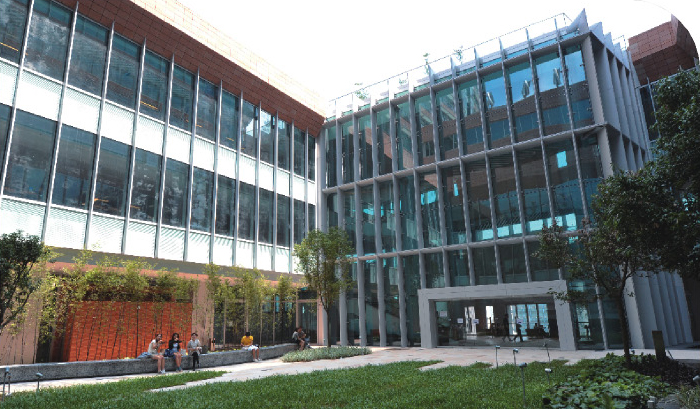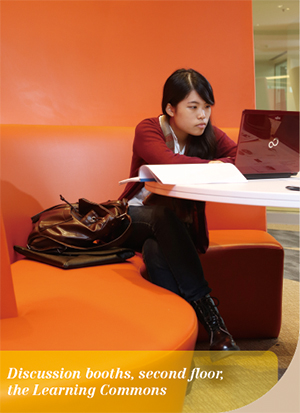

|
ENABLING A TOTAL What do we want our students to gain from an education at HKU? That question has been at the heart of the University's preparations for the new four-year curriculum. While our goal is straightforward – we want our students to develop intellectual capabilities, professional skills and the core values of responsible global citizenship – how we get there is what distinguishes our new curriculum. HKU has embraced the idea of a total learning experience for students, from the classrooms to the halls to the student mix to the physical environment in which they learn and beyond to the community. This total learning experience is aided by two things: flexibility and a desire to promote learning that is student-centred. Students have much greater choice about what, where and how they learn and they are presented with opportunities to learn across the whole spectrum of university life. Ultimately, we are asking our students to embrace learning as an integral part of their lives and carry that concept with them well beyond their university days. Curriculum Innovation The starting point for our reform has been the expansion of the undergraduate curriculum from three years to four years that was launched in all Hong Kong universities from September 2012. This has provided a rare opportunity to revisit our learning aims and think deeply across the University about what we want to achieve in teaching and learning. |
 "The use of different colours, furnishings and configurations helps to bring variety to the learning environment."
- Kwok Wing-lam (left), Bachelor of Arts Year 1
|
||
Planning started immediately after the four-year curriculum was announced by the government in 2004. Our first priority was to establish learning aims. We consulted staff, students and the broader University community and agreed on six aims: the pursuit of academic and professional excellence, tackling novel and ill-defined problems, critical self-reflection, intercultural understanding, communication and collaboration, and leadership and advocacy for the improvement of the human condition. The focus was on what students learned rather than what they were taught. These aims have guided curriculum reform at both the University-wide and faculty levels. The Common Core is the most publicised outcome of our deliberations and it has been highly successful. All students are required to take subjects outside their discipline that focus on questions of deeply profound significance to humankind. These are not introductory-like courses but instead ponder interdisciplinary topics such as Poverty, Development and the Next Generation; The Birth of Surveillance Society; Infectious Disease in a Changing World; Environmental Pollution in China; and China in the Global Economy. There are four Areas of Inquiry and students in the four-year curriculum must take six courses that cover all four areas. The Common Core has not been our only focus, though. The question of how students learn is essential to our curriculum reform. While traditional classroom teaching remains a core activity, we also want students to have opportunities to put into practice what they learn and expose themselves to new situations that test their learning. The number and variety of experiential learning options has mushroomed in recent years and in March 2012 we established the Gallant Ho Experiential Learning Centre to support faculties in this area. The Centre works with community partners in and outside Hong Kong to identify projects that both meet the needs of the partners and provide learning opportunities for students. It also provides financial and other support for experiential learning for up to 1,000 students per year. |
|||